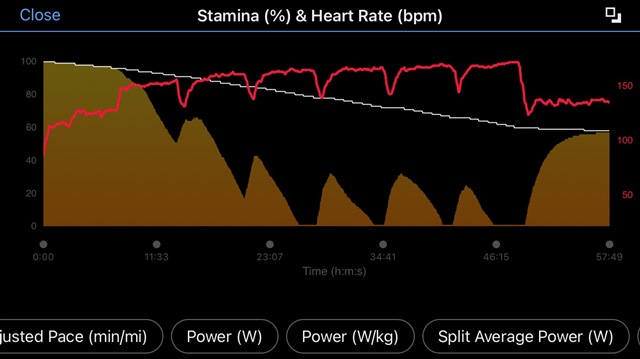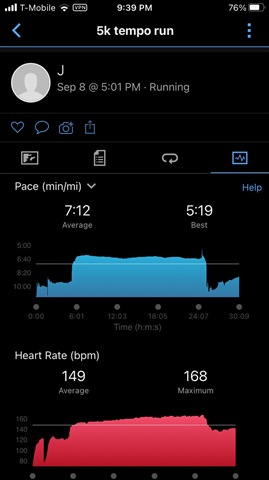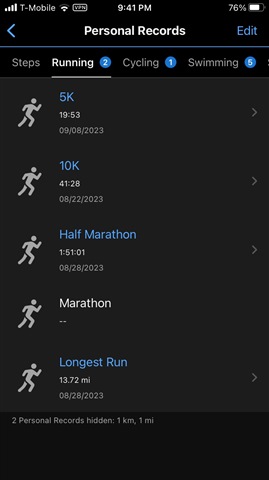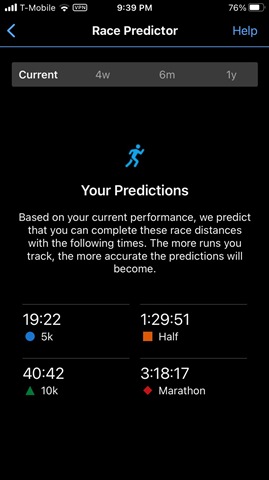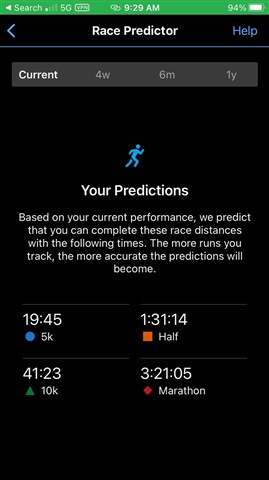My predicted race times and my "stamina" meter are way off and have been over the course of 3 months of consistent use. For example, my race predictor gives an estimated 5k time that is only a few seconds faster than the 5ks it has recorded from tempo runs. When doing any speedwork, my stamina will regularly go to 1% halfway through each interval. At the same time, it does seem to be recording improvements, as my VO2 Max and estimated times steadily improve as my workouts get faster.
While I haven't raced with this device yet, I'm quite sure it's very wrong, based on past experience with workouts and races.
What could be causing this issue?
